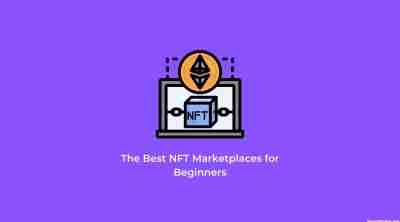Soulbound Tokens or SBTs could be available as early as the end of this year.
I decided to waste no time in dispatching this post so that you have everything you need to know.
Too fast? Confused?
Well, slow down. Take a deep breath and read on.
1. What are SBTs?

Well, as early as April 2022, no one had heard about them. Then, come May 2022, Vitalik Buterin, the co-founder of Ethereum, published a research paper titled “Decentralized Society: Finding Web3’s Soul“.
In this paper, apart from presenting his future vision for Ethereum & Web3, Vitalik speaks of a new kind of NFT – nontransferable & nontradable – to be held in your wallet, called a soul, forever.
2. Why hold SBTs when they are nontransferable & non-tradable?
Interesting question. The problem with the common man is that NFTs have come to represent just one utility – make money by flipping them.
In reality, NFTs could technically be programmed to replicate and perform thousands of real-world actions. In this regard, SBTs are proposed to tokenize information about the individual holding them. Think of it as a tokenized profile.
3. So SBTs are really my resume as an NFT?
Yes and No. SBTs might be your resume in layman’s terms but the critical element here is that you can lie on your resume but not on your SBT.
This is because your SBT will be issued and attested by other SBT issuing bodies.
This is a game-changer because it takes away the need to verify your claims on your resume. Just as with NFTs, any SBT can be immediately checked for authenticity.
4. What applications could SBTs have?
Millions. That’s the easy answer but let’s list the top 5 that come to mind:
- Educational qualifications: SBTs are issued by the academic body to the successful candidate, representing an incorruptible record of educational achievement. This makes the process of verification instantaneous.
- Work Experience: SBTs are issued by an employer to an employee as an incorruptible record of performance on employment. This eliminates the need to cross-check with a candidate’s current employer when hiring.
- Credit Scores: SBTs are issued by Defi protocols, reflecting performance on debt obligations. This reduces credit spreads for future lending & reshapes the whole ecosystem by allowing borrower risk-specific lending protocols to be established.
- Health Records: SBTs are issued by a diagnostic center, thus creating an incorruptible record of an individual’s health. This could provide incorruptible information for decentralized insurance protocols to offer such coverage to those that require it.
- Records of Identity: SBTs could be used to create unique records of identity. An example is invitations to online events, where holders of SBTs could be admitted to such events on presentation & verification. Another example is Wills & Gifts, where SBTs could be designed to identify the holder as the inheritor of a digital estate or receive the same as a gift subject to the passing or fulfillment of certain pre-defined conditions.
5. How would SBTs be programmed to cater to changes?
The best part about SBTs is that they are expected to be revocable by the issuing body.
Thus, if you no longer meet the continuing education requirements of your accountancy body, they could revoke & issue you a new SBT depicting the change of your status from being active to non-active.
6. What if I lose access to my wallet?
Well, this is a problem we all have with the digital space- losing the private keys to our wallets. From the perspective of SBTs, this is akin to losing the original degree conferred by your college!
However, much like you losing your college degree prompts you to approach that college again for a duplicate, one could, effectively, see that you would approach the same SBT issuing body to help you recover your wallet &/or create a duplicate.
Vitalik veers towards the suggestion of Soul community members, designated by the individual, who could, subject to undertaking certain verifications at their end, help with the recovery of the wallet.
The idea is that SBT wallets could be programmed to allow the wallet owner to designate specific trusted individuals &/or institutions, to have part of the key phrase with them. Each designate, subject to verification at their end, may then reveal the part of the key phrase they hold.
This community consensus on verification though is fraught with certain issues. Designated Soul community members could expire or the wallet holder may end up having a fight with them, which creates a breakdown in the recovery chain.
Vitalik recognizes this flaw in the trustless environment he envisions & has suggested that this is an area that will evolve into perfection over time.
7. Potential Issues
The Crypto space has prided itself on chasing the ideal of a decentralized & democratized society. Unfortunately, SBTs will reveal identification traits that may allow members of the Crypto community to create exclusions.
For example, today, your educational accreditation doesn’t matter when investing in a Defi protocol, but it could be made a requirement leading to exclusion from certain products.
This is a simple and tame example. Utilizing identification traits for politically biased exclusions – cyberattacks or predatory financing to certain social groups – could be far more damaging.
Vitalik raises this concern and offers solutions. He envisages that SBTs will need to have functionality that allows them to have restricted public viewing as a possible solution.
8. Concluding Notes
You should expect SBTs to be available on the Ethereum blockchain by the end of this year. The innovative concept is set to revolutionize Web3 & help transition us aggressively to a new decentralized way of living.
The applications are enormous & shall help create new dimensions for the Crypto economy by providing verifiable authentication for various use cases.
Adoption of the idea & management of potential pitfalls is the key to success.







Leave a Reply